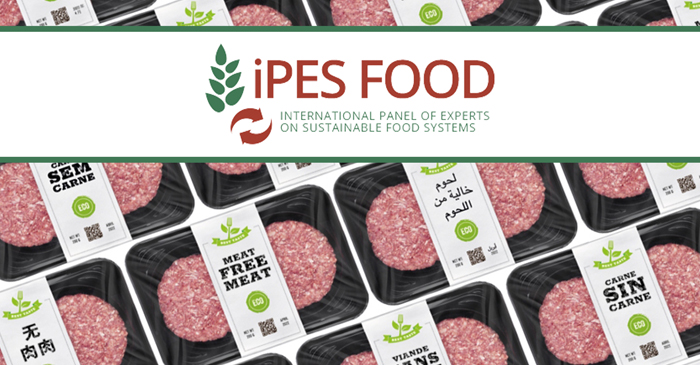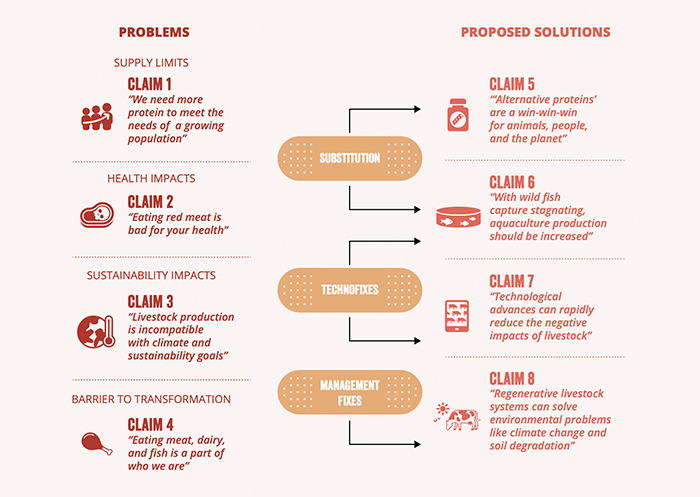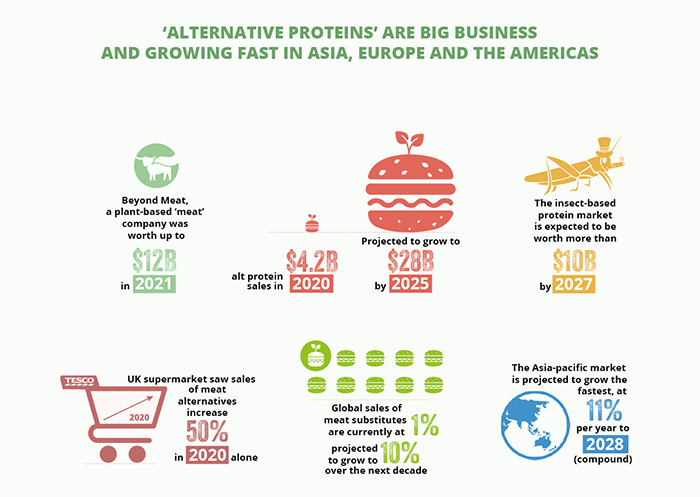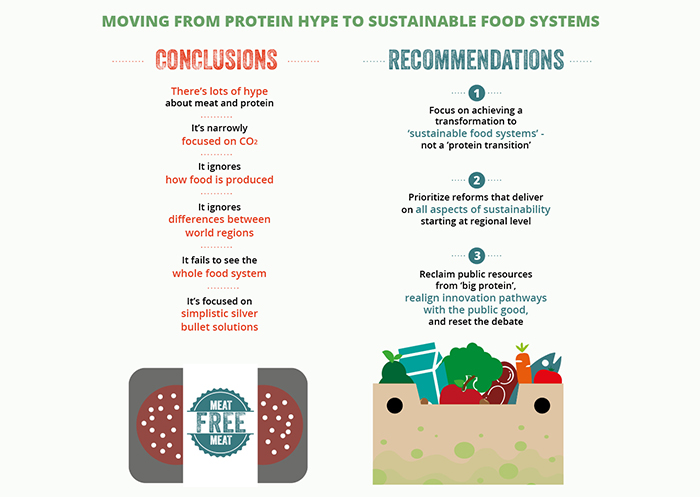IPES Food Study Says Fake Meat Won’t Save The Planet

The International Panel of Experts on Sustainable Food Systems released a new report last week challenging the “silver bullet” sustainability solutions often touted by leading alternative-protein companies. The comprehensive 104-page report, titled “The Politics of Protein,” aims to contextualize eight of the “most contested” and “potentially misleading” sustainability problem and solution-related claims, into the broad realm of the global food system.
The report first tackles the billions of dollars of capital flowing into the industry from all directions, including venture capitalists, international sovereign wealth funds and conventional protein producers like Conagra, Tyson and Hormel. That interest has led to the consolidation of alt-meat, egg, dairy and seafood makers, dubbed “Big Protein,” with many of the leading conventional producers still operating in ways that counter the sustainability promises offered via their new “alternative” investments, innovations and acquisitions, according to the report. The study defines alternative proteins as novel plant-based substitutes, lab-grown protein, insect-based protein and other “novel manufactured high-protein foods.”

The study also calls out notable players for creating an “alternative-protein monopoly,” including investment firms Vanguard, BlackRock and Breakthrough Energy Ventures, an early investor of both Impossible Foods and Beyond Meat, and “eye-catching backers” like Bill Gates, Sergey Brin and Richard Branson. Just last week a new venture capital firm emerged with actor Leonardo DiCaprio as a strategic advisor; Regeneration VC has the stated aim of “supercharging consumer-powered climate innovation” with a portfolio that includes new lifestyle food tech brand PANGAIA.
The report goes on to establish how alt-protein producers have shaped the conversation as not only a fight against climate change, but also against an apparent protein shortage. It argues against the idea there is a protein shortage altogether by detailing how protein consumption doubled between 1961 and 2015 and is disproportionately led by the “Global North” (North America, Europe and Asia).
According to the study’s lead author and IPES-Food member, Phil Howard, alt-protein makers have overlooked the long-term implications of reinforcing how the current industrial food system operates.
“It’s easy to see why people would be drawn to the marketing and hype, but meat techno-fixes will not save the planet,” said Howard in a statement. “In many cases, they will make the problems with our industrial food system worse – fossil fuel dependence, industrial monocultures, pollution, poor work conditions, unhealthy diets and control by massive corporations. Just as electric cars are not a silver bullet to fix climate change, these solutions are not going to fix our damaging industrial food system. We need to change the system – not the product.”

Alt-food makers, Howard argues in the study, fail to grasp their influence on the global food system beyond topics of greenhouse gas emissions, mono-cropping, livestock production and soil degradation. The study criticizes how sustainability claims have been reduced and simplified to those areas without taking the livelihoods of the 1.7 billion smallholder farmers operating in the Global South into account (inclusive of Oceania, Africa, and South and Central America); despite being the world’s top four conventional protein producers, the alt-protein industry has very little stakeholders in those regions.
While concepts like regenerative have increasing been tied into the alt-protein movement, the report states that many alt-protein makers fail to address the impact of current farming systems at the source and through each step in the supply chain. It suggests that a total upheaval of conventional farming methods is the only viable, long-term solution.
“Claims about ‘alternative proteins’ also tend to ignore the risks of reinforcing current food system dynamics, such as the reliance of these new technologies on mass-produced, monocultured ingredients and energy- intensive hyper-processing – which will offset many of the benefits of taking factory farms off stream,” the report states.

What does this mean?
The alternative protein market is growing approximately 20% each year and is expected to reach upwards of $28 billion by 2025, according to the study. With more and more funding being pumped into these projects, Howard and his team believe the discussions around alternative foods need to be refocused away from ‘protein-hype,’ to account for its global impact.
“Analysis of these claims reveals that misleading statements and over-generalizations are pervasive in debates on meat and protein,” the report states. “A number of claims are widely repeated and accepted as fact, despite being based on uncertain evidence or addressing only certain aspects of the problem.”
The report goes on to call for an end to public funding of “silver-bullet” technologies and more promotion for diverse organizations within the industry through antitrust and competition laws.
IPES-Foods is funded by The Daniel and Nina Carasso Foundation (founder of Danone), The Charles Léopold Mayer Foundation for the Progress of Humankind, the 11th Hour Foundation, and Rosa Luxemburg Stiftung.
















